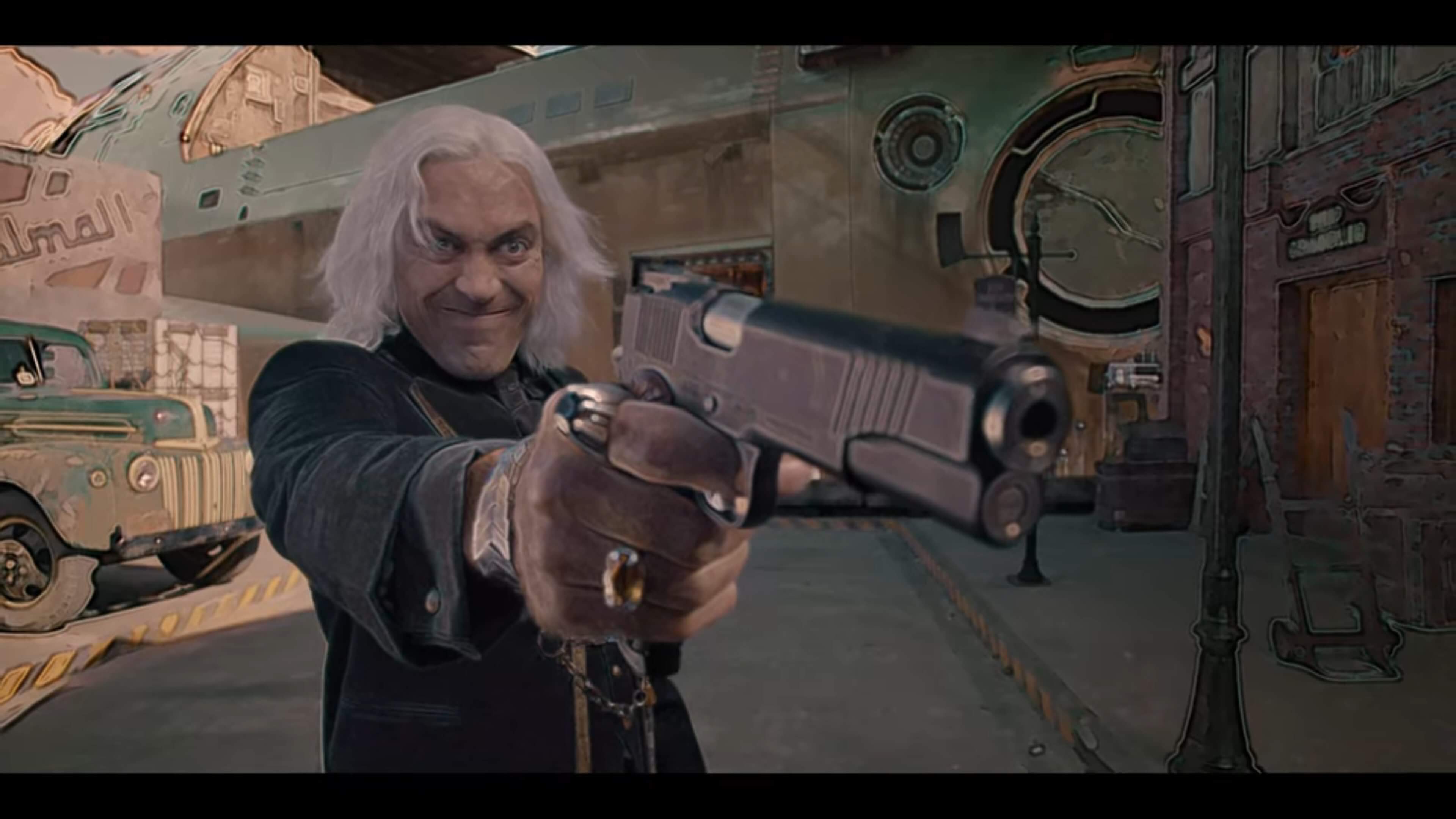When I was a kid, I had heard of Cowboy Bebop as a showcase of how mature anime as an art form could be, as compared to localized kids’ shows like Yu-Gi-Oh! and Pokemon. By the time I’d heard of it, Cowboy Bebop was off the air in the United States. This bet gave me a reason to finally watch it, and Netflix’s distribution deal (to boost their live-action adaptation, no doubt) gave me the perfect way to watch it. The live-action adaptation had properly come out when I started watching the anime, and that day I read a Twitter thread roasting the shit out of the adaptation. That’s where I found this great picture of IRL Vicious:

I watched all 26 episodes over about four nights, taking notes as I went. I had to watch most of it wearing a pair of reference headphones, as the first episode’s sound mixing muffled dialog but boosted gunshots and explosions, so I couldn’t turn up my TV volume without waking everyone up. The next two episodes had severe sound compression problems that really detracted from the experience. After those three poor digitizations, the sound quality improved, and I could properly enjoy the show.
By the time I finished the show I had a lot of notes and a lot of thoughts on what I’d seen. First I’m going to discuss the influence Cowboy Bebop seems to have had on the works that came after it. Then I’m going to present some critiques I’ve heard from my contemporaries and respond to them. I’ll end with a discussion of the title of the work. And no, there is no TLDR or abstract. I spent too long writing all of this to abbreviate myself for someone’s convenience. But I did link each part of the thesis if you want to pick where to start.